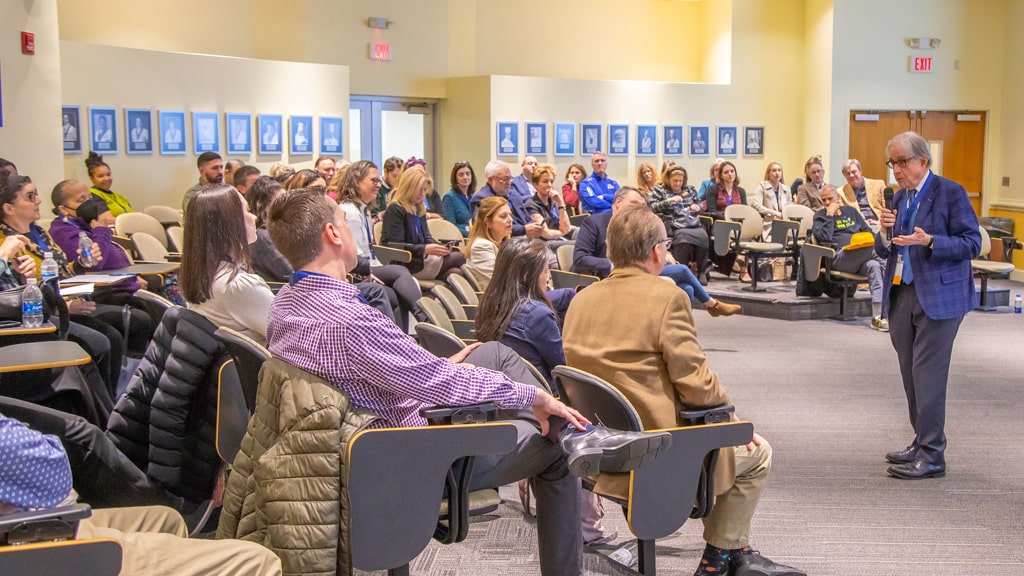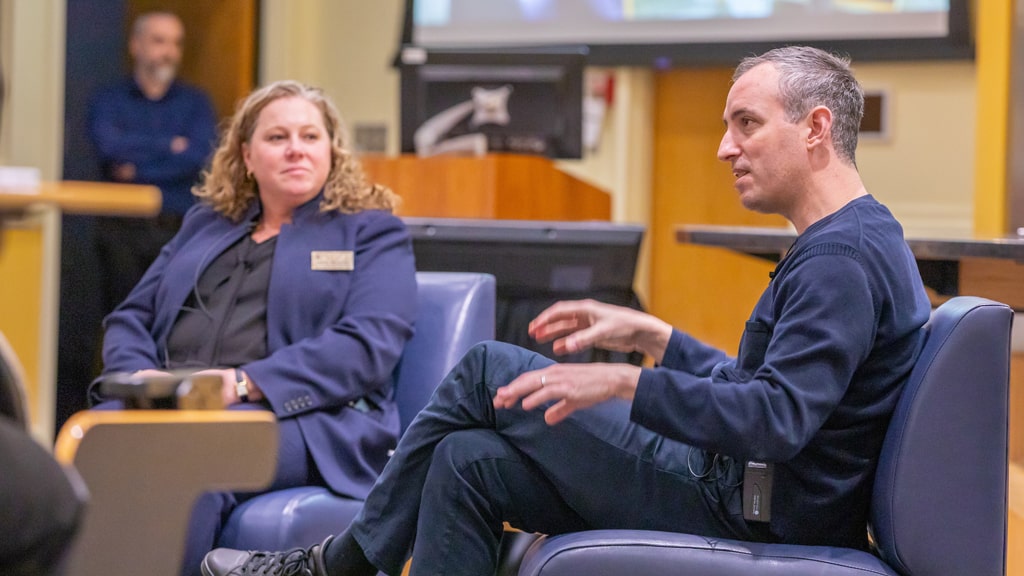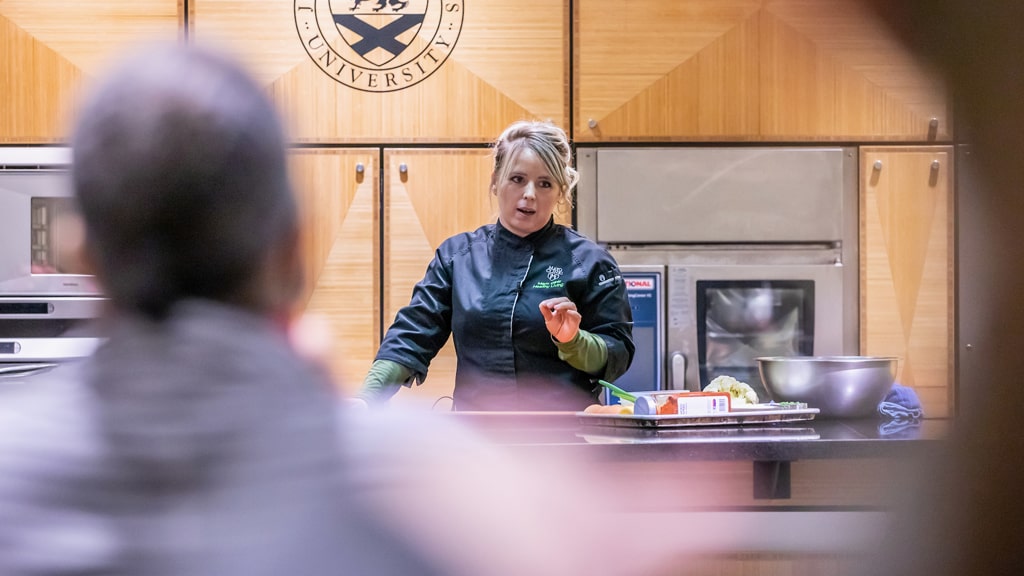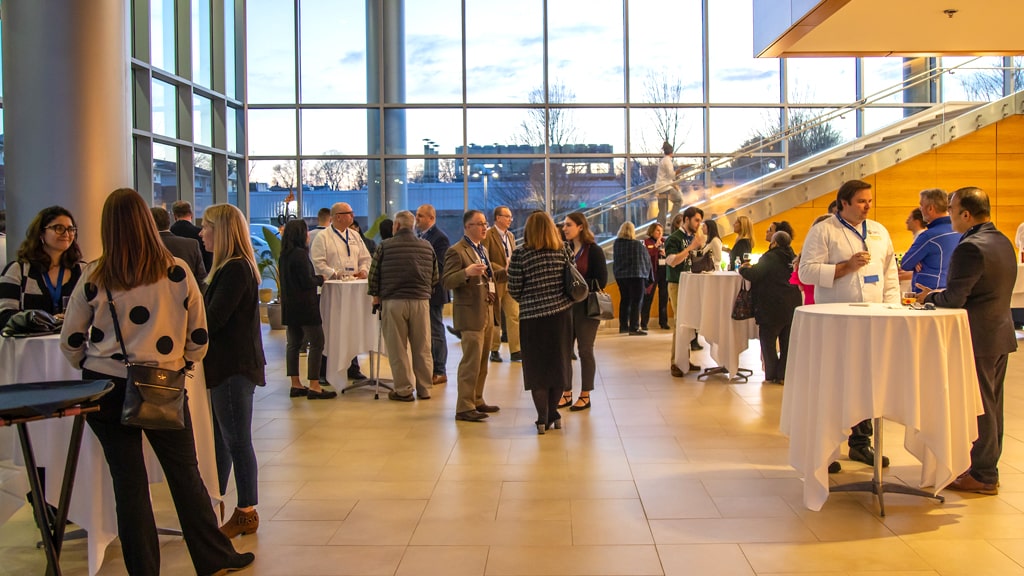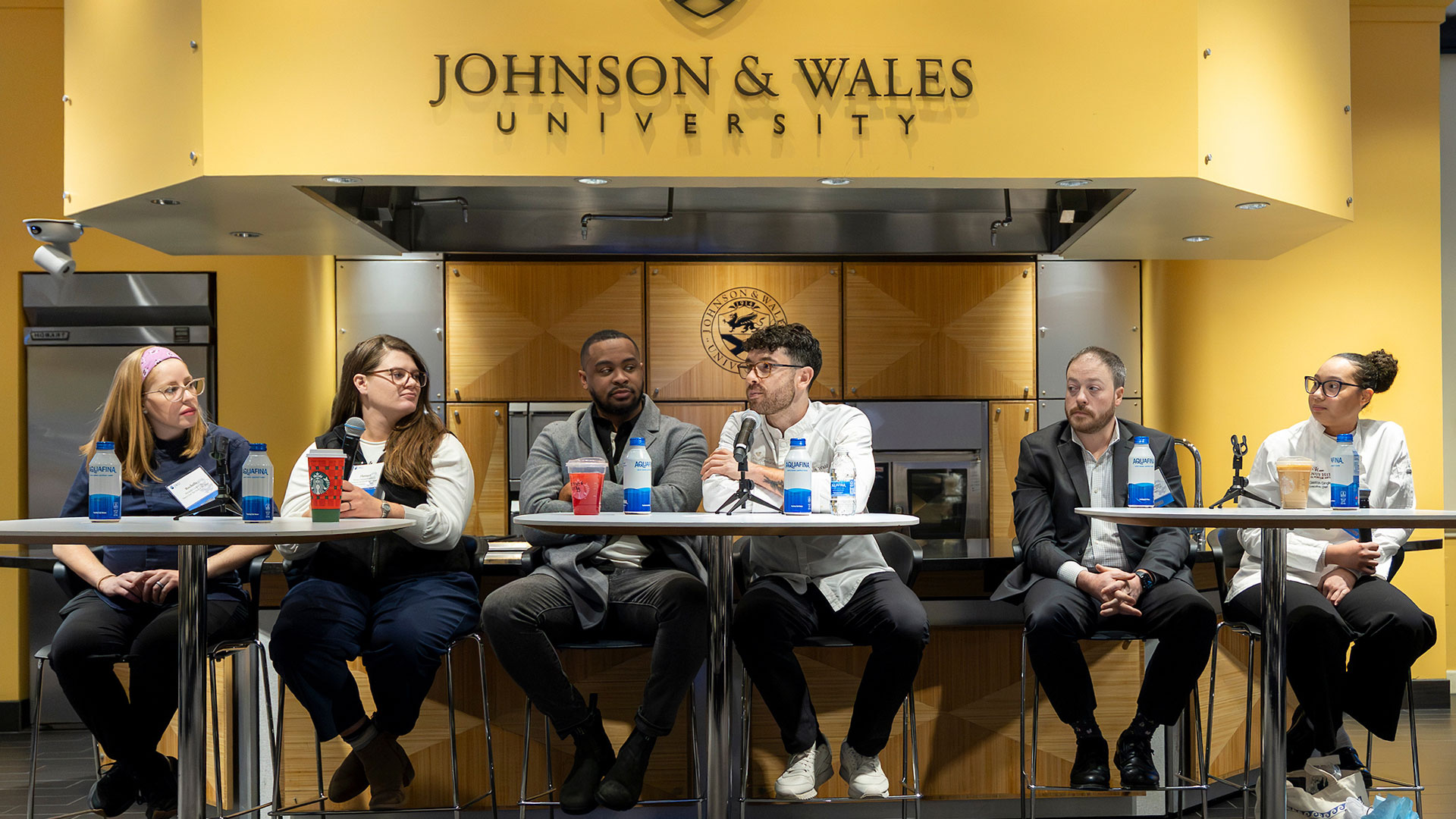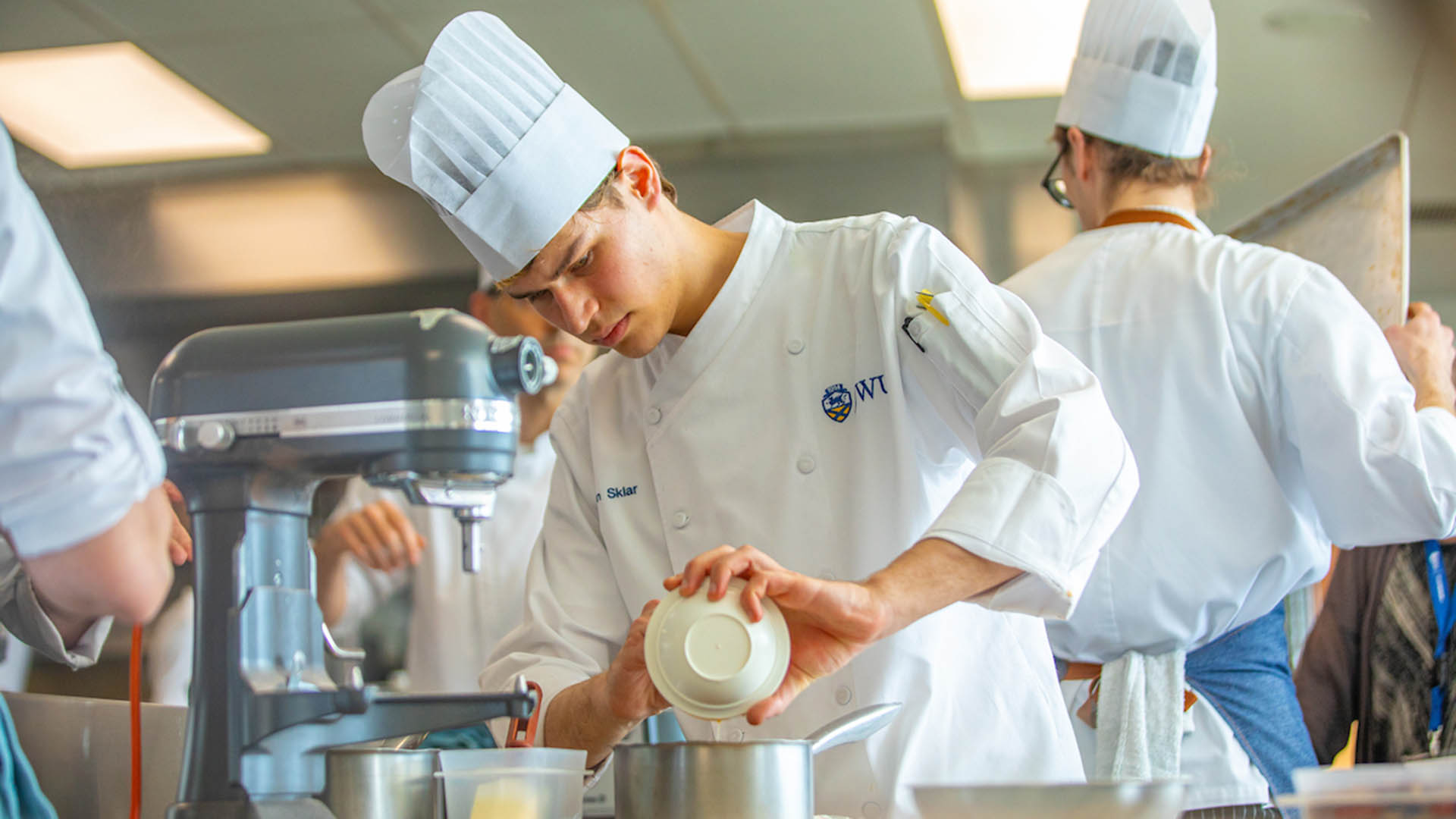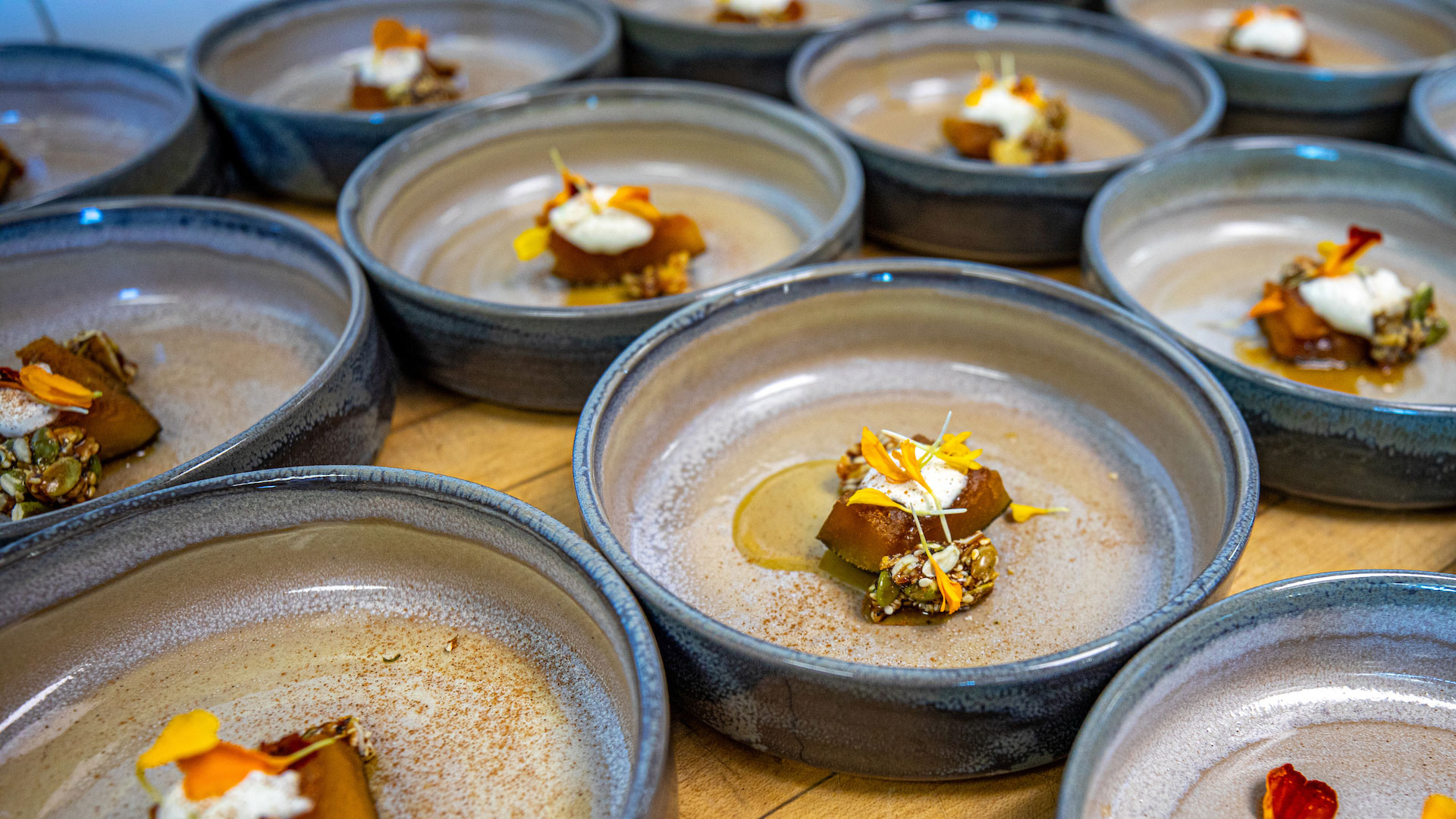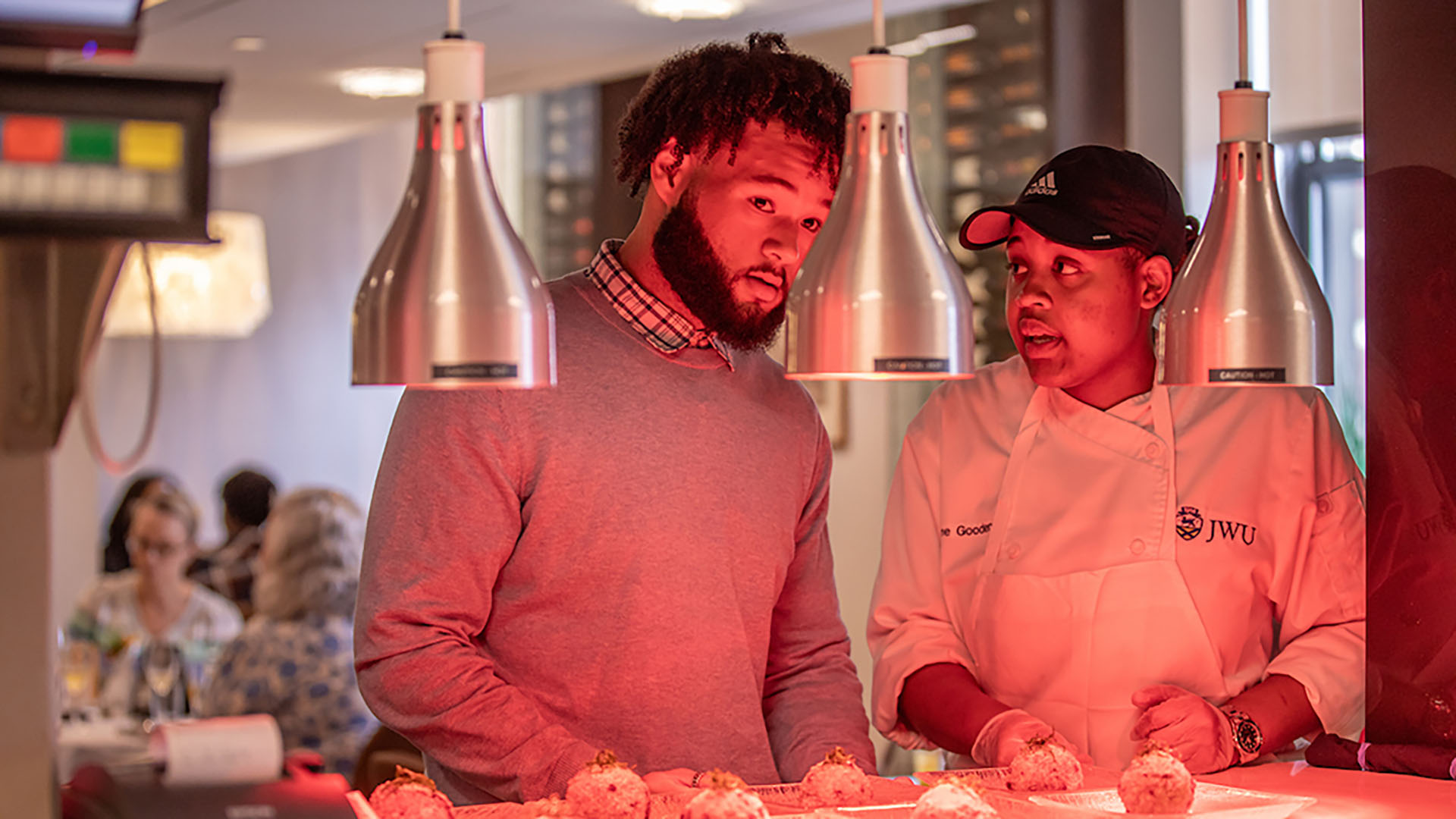Building Culinary Communities at the 2023 FIT Symposium
Culinary professionals have a reputation for being independent and driven, with work that frequently demands a head-down work ethic that favors autonomy over the community. JWU Providence’s recent Food Innovation & Technology (FIT) Symposium — the third in a now-annual series — aimed to plot out kinship and cooperation in the vast and multivalent network of chefs, activists, makers and creators. As the first in-person iteration of the Symposium, attendees could finally finally meet face-to-face — allowing networking and collaboration to bloom.
After Elizabeth Falkner’s eye-opening screening of her Covid-era documentary, “Sorry We’re Closed,” she summed up the energy in the room: “It’s an exciting time for culinary, and I see it happening here at JWU.” She paused. “Maybe we shape the way communities are.”
Some other lessons from the Symposium:
Finding Star Potential
Bringing culinary professionals from all corners of the industry and all levels of experience and expertise is also a great way to step into one another’s shoes (metaphorically) and break down imagined divisions.
“Hospitality is a field where we all endeavor to be humble, but you need to say out loud what you’re great at.”
Will Guidara addressed this in his candid look from hospitality’s front lines. (He also signed copies of his book, “Unreasonable Hospitality.”)
Drawing on his 25-year background as a restaurateur (and former co-owner of the Make It Nice restaurant group that includes Eleven Madison Park), Guidara had this to say about making every single employee work to the best of their abilities: “Hospitality is a field where we all endeavor to be humble, but you need to say out loud what you’re great at. Someone who isn’t succeeding at one role has the potential to be a star in another role.”
During Guidara’s tenure at Make It Nice, Eleven Madison Park was named the #1 restaurant in the world. It marked the pinnacle of his career in fine dining, “where we can create these little magical worlds in a world in desperate need of more magic.” When he took the helm, he told executive chef Daniel Humm, “I’m not going to do this unless we agree that the dining room does not work for the kitchen. With all respect, people will go back to a restaurant if the food is mediocre and they’re treated really well. … I’m not saying that the service matters more, but we need to agree that it matters the same.”
He added, “’Front of house’ and ‘back of house’ were like curse words in our culture. We didn’t allow them because they were divisionary. It was the kitchen and the dining room — recognizing that we’re working at one restaurant.”
From Noma to the School Lunch Line
Dan Giusti also spent years in fine dining, first at Aureole in New York City and ultimately working his way up to executive chef at Noma. But at some point, he knew he wanted something else out of cooking. Reading about First Lady Michelle Obama’s comprehensive plan to revise school meal standards, Giusti had a lightbulb moment: Why not bring professional chefs into the institutional space? Brigaid was born. The project kicked off in the New London, Connecticut, school district, where one in 4 families live under the poverty line. Giusti started with two chefs in 2016; he has 32 employees and is on track to have 50 by mid-year.
Despite the promise of benefits, paid time and weekends off, it’s still hard to find chefs. “And the barrier is this idea of being a chef in an institution because there’s still a stigma there,” explained Giusti.
But school districts are starting to see the value of having a chef on the team. A big part of Brigaid’s work is getting school districts to pay appropriate amounts for chefs — and it’s working. Giusti told two anecdotes outlining the shift in perception: “When we got our contract in New London, the local newspaper had a quote that said, ‘Why don’t we just send our kids to school in limos?’ Because the idea of putting chefs in a school was so outlandish — a luxury, like professional chefs and school food don’t mix. And then literally this week — it was yesterday — we placed a chef in White Plains, New York. The food service director said to me in an email, ‘It’s so amazing. [The chef] has brought such energy to the team.’ And one of the managers had told her that she never thought their program or kitchen would ever deserve the presence of a professional chef.”
Centering Wellness through Food
Jen Welper ’06 and Destiny Antommarchi '15 ended the day by focusing on ways to add more balance to our lives.
As the wellness executive chef at the Mayo Clinic, Welper brings good humor and tireless enthusiasm to the practical job of changing the perception of “healthy” food: “It’s really hard to market healthy,” she explained. “There’s this automatic connotation that’s negative.” But she’s is determined to change that: “We’re not taking away flavor, we’re adding nutrition.”
“We’re not taking away flavor, we’re adding nutrition.”
At the clinic, Welper boosts the functional nutrition of dishes with clever swaps (cauliflower in a breakfast frittata for a whole serving of veggies) and smart deployment of fats (like cheese). Since “people don’t do well with drastic [diet] changes,” she opts for subtle tweaks that boost flavor without sacrificing nutritional value. She illustrated her methods by cooking a delicious quinoa bowl with diced sweet potato and zesty chopped poblanos.
After winning the San Pellegrino Young Chef Competition when she was still a JWU student, Destiny Atommarchi could have worked at any restaurant in the world. But she moved to Australia to devote 6 months to volunteer work. “My success from an external perspective didn’t mean a lot,” she explained. “I wanted to make a difference.” She started a café in Perth and built water filters in Calcutta. Even in the face of crushing poverty, the generosity and kindness of the people in India had a huge effect on her. “I developed rhythms of rest throughout my life. I would have periods where I wouldn’t buy anything and would take time to appreciate what I have,” she noted.
Now based in San Diego, California, Antommarchi uses her experiences to cultivate compassion in her community. Every Monday, she takes a group of volunteers to bring soup to the homeless encampment in the City Heights area. She sees the same people week after week, and has developed trust with them. “Everybody needs an opportunity to communicate and talk.”
It’s a lesson she brings to her day job at Copa Vida, overseeing quality and product for all 6 cafe locations. Her mantra is “Connection before correction” — rather than jumping to all the things that might be going wrong, she starts any conversation with active listening. “Try to understand their perspective.” She ended her presentation with a profound question for all of us: “When you walk into your workplace, how do you want people to respond to your presence?”
During Falkner’s discussion, she noted, “The more I cook and learn, the less I know.” This endless curiosity to know more and be better was evident throughout the FIT Symposium.
TOP: A BRANDED NOTEBOOK, PENS AND OTHER SWAG FROM THE FIT SYMPOSIUM. BELOW: KEYNOTE SPEAKER PAUL FREEDMAN (YALE UNIVERSITY), WILL GUIDARA, JEN WELPER, AND A MIXER EVENT FOR ALL ATTENDEES. PHOTOS: MIKE COHEA.
